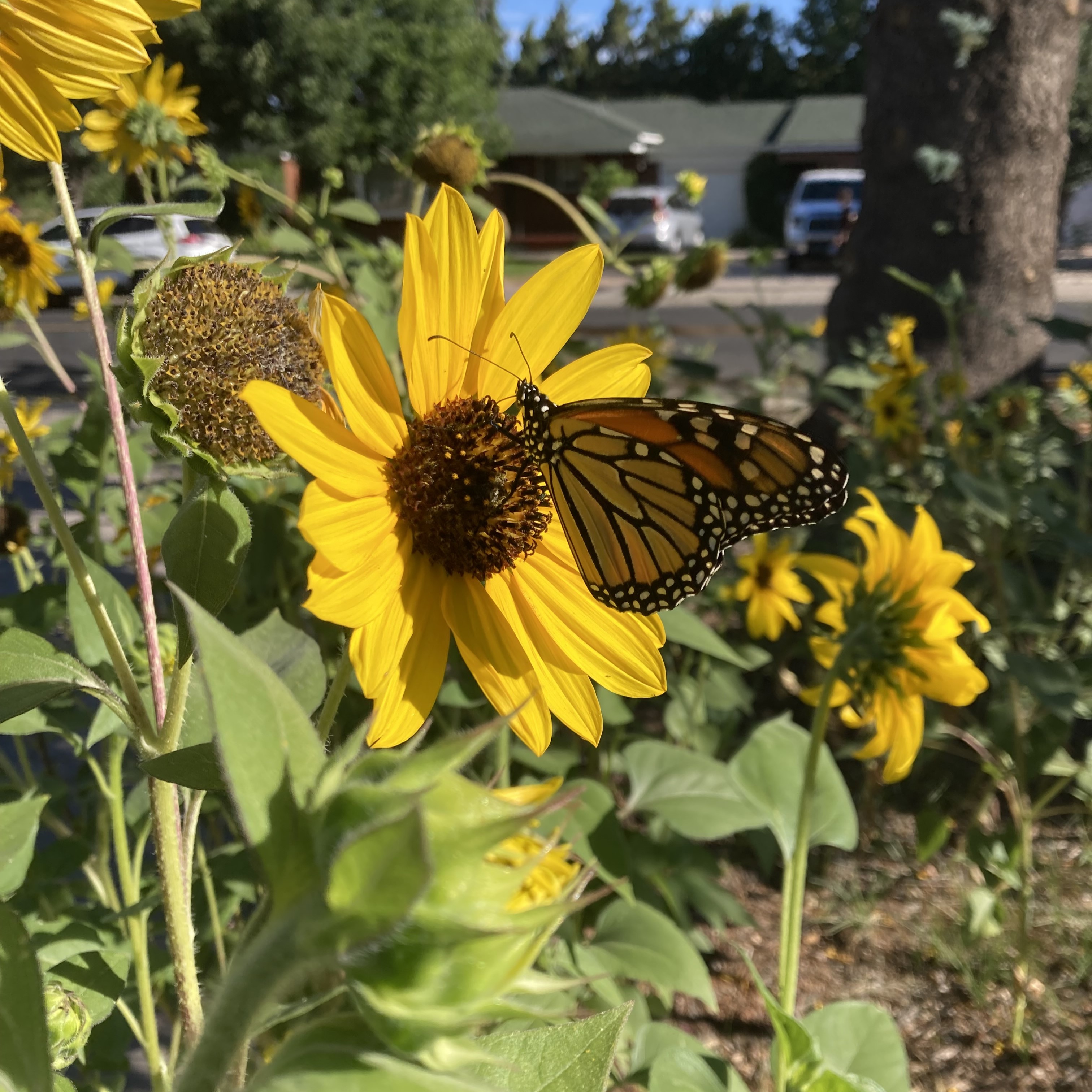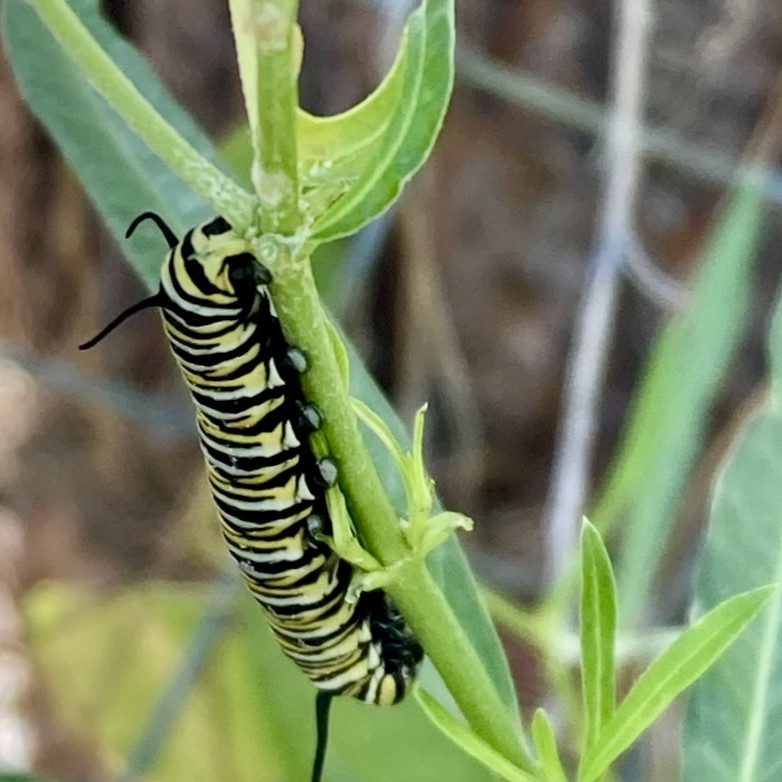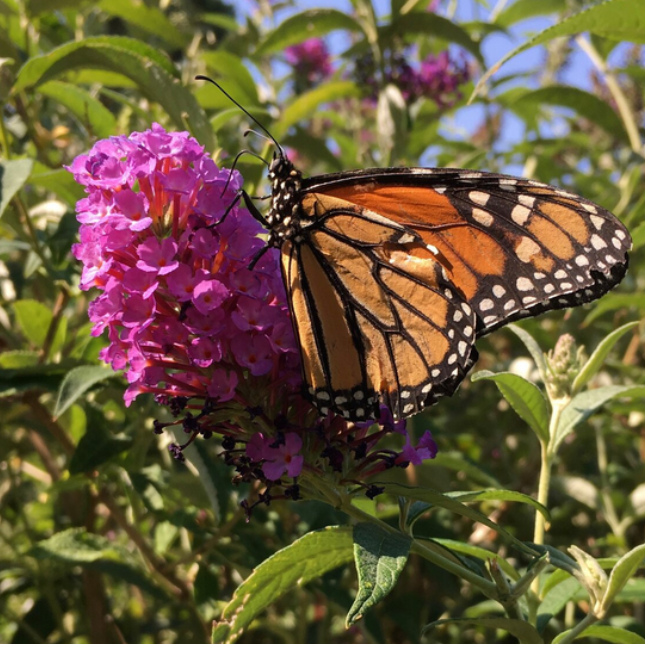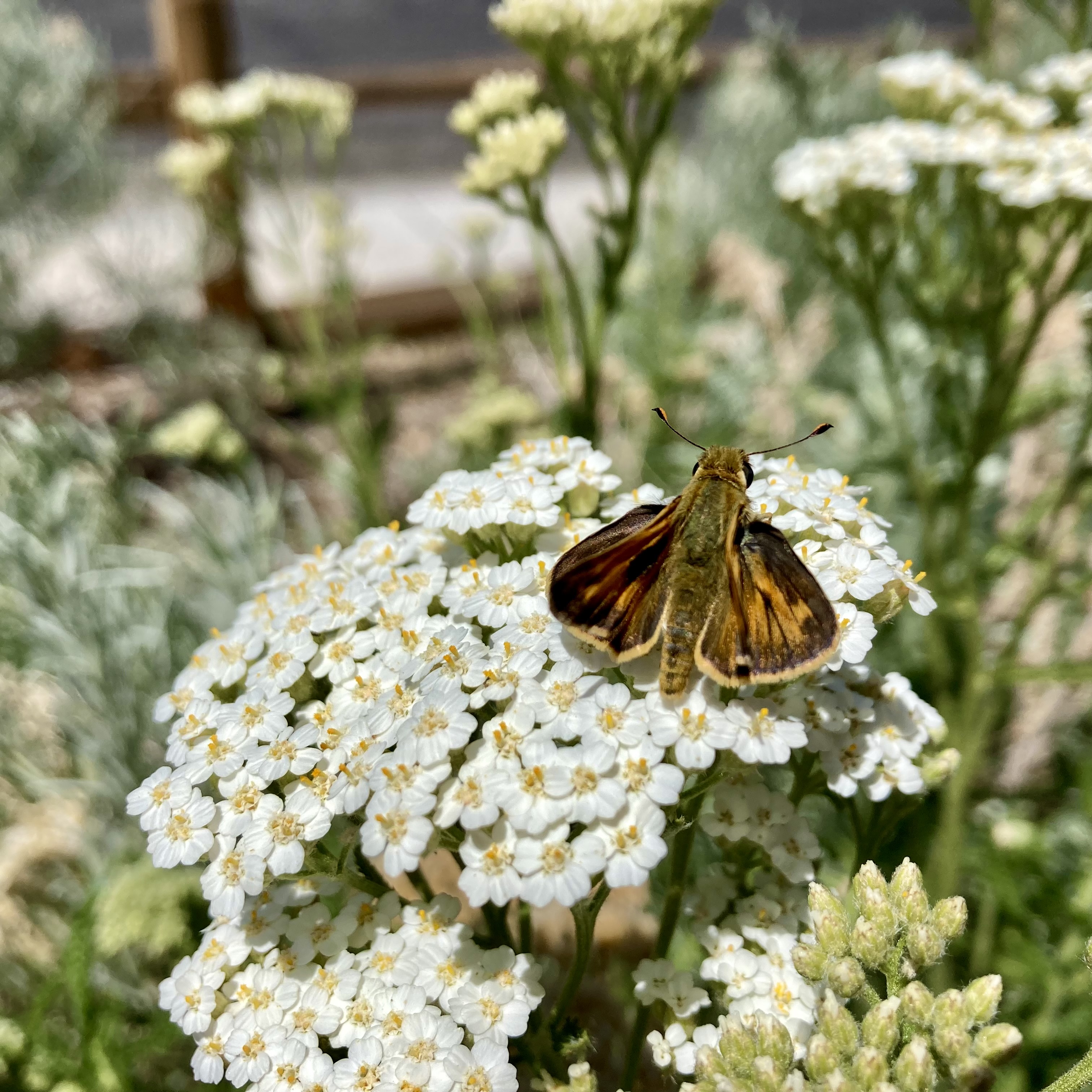Create a Pollinator-Friendly Garden
Help pollinators by planting your own pollinator-friendly garden!
 Why Pollinators?
Why Pollinators?
-
Pollinators are necessary for the reproduction of over 80% of all flowering plant species.
-
Can you imagine a world without chocolate? Pollinators are needed for 75% of our food crops. Roughly 1 of every 3 bites you eat dependeds on a pollinator. This includes chocolate!
-
Insects are also the foundation of food chains. Many animals depend on insects for food, including spiders, reptiles, amphibians, rodents, freshwater fish, and 96% of terrestrial birds.
 Pollinators are in Decline
Pollinators are in Decline
Habitat loss, disease, climate change and environmental contaminants have contributed to the decline of pollinator species. By creating pollinator-friendly gardens, we can provide habitats and resources for these valuable creatures. These gardens beautify our yards and neighborhoods while protecting clean air and water, healthy soils and local biodiversity.
What You Can Do to Help
-
Plant Native. Native plants are the best choice to attract and support native pollinators. To learn more about native plants visit Nevada Bugs & Butterflies’s Pollinator Plant List for Northern Nevada or One Truckee River’s River-Friendly Landscaping: Pollinator Plants. These gardens can be any size. It's OK to start small.
-
Include Diversity. Selecting a diversity of nectar and pollen-rich flowers supports a greater number and variety of pollinators. To provide a continuous supply of food for pollinators, choose plants that bloom at different times throughout the growing season. Butterfly caterpillars feed on the leaves of larval host plants (for example, monarch caterpillars eat milkweed leaves). For many butterflies, their caterpillar host plants are native shrubs and trees, like bitterbrush, serviceberry, choke cherry, Gambel oak, lupine, and rabbit brush. So, consider including some native shrubs and trees in your pollinator garden, as well.
-
Complete a Wildlife Assessment. Conducting a wildlife assessment of your space before creating a pollinator-friendly garden will help you understand the local ecosystem and identify threats and opportunities for local pollinators. The Xerces Society’s Habitat Assessment Guide for Pollinators in Yards, Gardens, and Parks offers a great resource to ensure that your garden is well-suited to support pollinators.
-
Limit Pesticides and Herbicides. The use of pesticides could unintentionally harm pollinators. A healthy and diverse pollinator-friendly garden will welcome natural beneficial insects that protect plants from herbivory, reducing the need for pesticides and other environmental contaminants. For more tips on pesticide use visit the North American Pollinator Protection Campaign’s guide for Solving Pest Problems Without Harming Pollinators.
-
Spread Awareness. Tell your friends, family, and community about the importance of pollinators and advocate for the practice of creating pollinator-friendly gardens within your own neighborhood.
 Local Sources for Native Plants and Seeds*
Local Sources for Native Plants and Seeds*
To grow your own pollinator-friendly garden, visit these local sources offering native plants and seeds.
- Comstock Seed
- Nevada Monarch Society
- Reno Food Systems
- Rail City Garden Center
- Villager Nursery
- Vital Bee Buds
 Pollinator Organizations in Washoe County*
Pollinator Organizations in Washoe County*
Explore how Washoe County and our community are advocating for pollinator conservation through local initiatives and education programs.
*Trade-name products and services are mentioned for information only. Washoe County does not necessarily endorse these products and services. Nor do we intend to discriminate against products and services not mentioned.
Have a recommendation to share with Washoe County's Sustainability team, contact us here.
